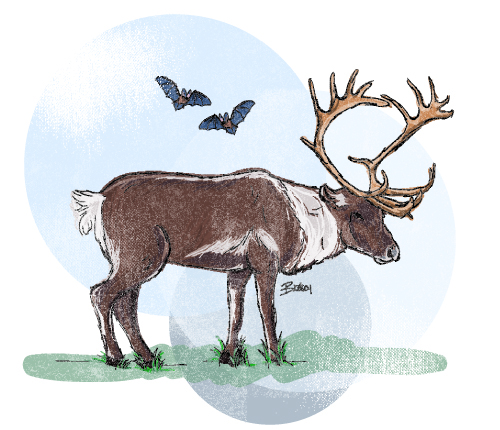Earth Rangers brings nature right into the classroom, while empowering students with real-world ways they can help the environment
A falcon flies over a full gymnasium of elementary school children, as some duck their heads, believing the bird may land among them. But it quickly swoops up before flying back to the presenter at the other end of the gym. The kids’ excitement is obvious as their eyes remain wide and they laugh with genuine wonder.
Assistant principal Linda Watt says it’s an experience the kids will talk about for weeks to come. And it’s just one aspect of the Earth Rangers program that connects children with issues related to wildlife in a way that goes far beyond the reach of any textbook.
Earth Rangers is a national program that brings school assembly presentations and classroom visits to schools across the country — kids watch presentations, learn about live animal ambassadors, and hear about real conservation efforts in their areas. And then, they are given a chance to be Earth Rangers, which is a free membership to a program where they can learn, complete activities and start their own fundraising campaigns.
Last year, Edmonton Community Foundation gave funding to Earth Rangers so that the organization could go from visiting 18 schools the previous year to 30 schools in the Edmonton area; and this year, 40 schools will have a chance to be involved.
“Instead of just talking about these kinds of broad concepts with all the negative messaging you hear about the environment and climate change and biodiversity loss, we bring real-life innovations that are underway that are working to protect species in Canada. And kind of give the kids a sense of hope so that when we engage on these issues, we can really make a difference,” says Tovah Barocas, vice president of external relations for Earth Rangers.
Working with conservation groups across the country, Earth Rangers determines what projects best speak to the various geographic areas they visit before deciding what to include in the presentations each year. They’ve featured information about threats facing pollinators, the dangers of a deadly fungus impacting bat populations in North America, conservation projects for swift fox, and land planning use work in Alberta with the goal of helping caribou populations.
Watt sees the impact learning about these projects have on the students from her school. Many kids become Earth Rangers, and participate in fundraising events, including a bake sale that raised money for conservation efforts toward bats. It’s especially great, says Watt, to see children connecting with wildlife of all kinds. Rather than just connecting kids with animals they might find cute or may already find interesting, the program digs deeper, explaining the importance of biodiversity and each species within that bigger picture.
She also sees the ways that the program empowers students. They gain knowledge and a high level of concern for the environment; and when they get their Earth Ranger cards in the mail, they realize they, too, can make a difference.
“It’s an early step for them, being engaged with the world. It drives home the idea of taking action for themselves. That even as a kid there are things they can do,” says Watt.
